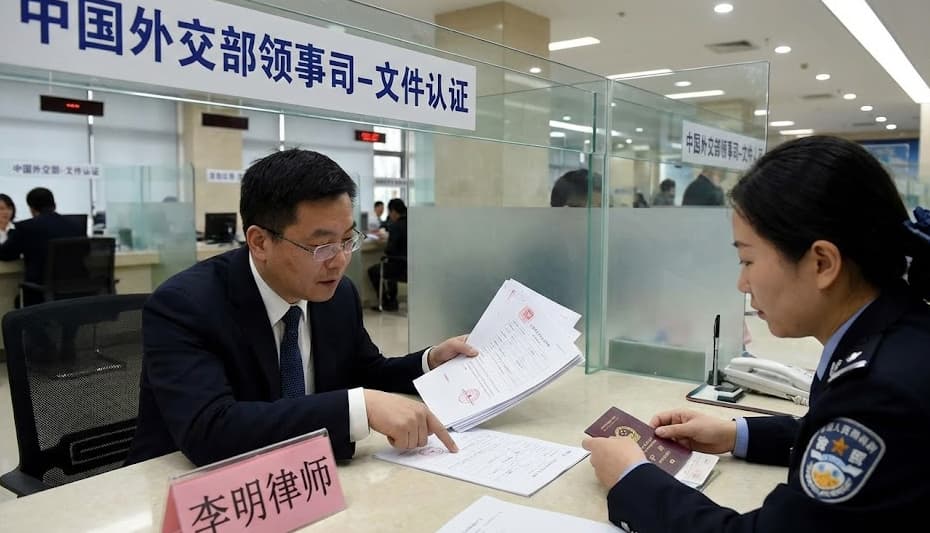The Canton Fair connects thousands of buyers and sellers every year. It also attracts scammers looking to take advantage of unprepared visitors.
Fake suppliers, quality switches, payment fraud, and booth agent scams are among the most common threats you might face at the fair. Understanding these risks before you attend can save you time, money, and major business headaches.
Many attendees assume that exhibitors at such a large official event must be legitimate. This false sense of security makes it easier for scammers to operate.
They use professional-looking booths, fake credentials, and convincing sales pitches to appear trustworthy.
The good news is that most scams follow similar patterns. Learning what to watch for and taking basic safety steps will help you spot the warning signs early.
Key Takeaways
- Scammers at Canton Fair use fake credentials, quality switches, and payment fraud to target unprepared buyers
- Verifying supplier credentials, checking business licenses, and getting samples before payment helps protect you from fraud
- Using secure payment methods and staying alert for red flags significantly reduces your risk at the fair
Common Canton Fair Scams

Scammers at the Canton Fair use several tactics to target both exhibitors and buyers. These schemes range from fake supplier operations to fraudulent booth services and counterfeit products.
Fake Suppliers and Impersonators
Fake suppliers set up convincing displays at the Canton Fair to appear legitimate. They show professional-looking samples and provide business cards with fake company information.
These scammers often disappear after receiving your deposit or sample payment. Some impersonators claim to represent established manufacturers.
They use stolen company logos and documentation to gain your trust. You might meet them at the fair, place an order, and never receive your goods.
Warning signs include:
- Reluctance to provide factory addresses
- Pressure to pay immediately
- Refusal to allow factory visits
- Unusually low prices compared to other suppliers
Always verify supplier credentials through independent channels. Check business licenses, company registration, and physical addresses before making any commitments.
419 Lottery Fraud Emails
You may receive emails after the Canton Fair claiming you won a lottery or prize. These messages use the Canton Fair name to appear legitimate.
The scammers say you need to pay processing fees or taxes to claim your winnings. The Canton Fair does not run lottery systems or prize drawings for attendees.
Any email asking for money to release prize funds is fraudulent. These scammers collect your personal information and payment details.
Delete these emails immediately. Never respond or provide banking information.
Booth Agent Manipulation
Booth space at the Canton Fair is limited and valuable. Scammers pose as booth agents offering to secure exhibition space for you.
They ask for large upfront payments but provide nothing in return. Some fake agents claim connections with fair organizers.
They promise guaranteed booth locations at premium spots. After you pay, they become unreachable or provide fake booth confirmations.
Always work directly with official Canton Fair representatives to secure booth space.
Product Brand Imitations
Counterfeit products flood certain sections of the Canton Fair. Scammers display items that copy famous brands with slight modifications. They claim these products are "inspired by" or "similar to" branded goods. Some sellers show genuine samples at the fair but ship fake products later.
This bait-and-switch tactic leaves you with low-quality merchandise that differs from what you ordered. Your customers may face legal issues when selling counterfeit goods.
Request samples before placing large orders. Compare the samples carefully with advertised specifications. Verify that suppliers have proper licensing for any branded products they claim to sell.
Scams can affect recruitment too. Read Recruitment in China: Strategies and Challenges for smart hiring strategies.
How to Identify Potential Scammers at Canton Fair

Scammers at Canton Fair use specific tactics to deceive buyers, from presenting fake business credentials to making unreasonable payment demands. Knowing the warning signs helps you avoid fraudulent suppliers and protect your business interests.
Warning Signs on the Trade Show Floor
Pay attention to booth presentation and exhibitor behavior when you walk the trade show floor. Legitimate suppliers invest in professional booth displays with clear company branding, product catalogs, and business cards that match their registered information.
Scammers often operate from poorly maintained booths with minimal signage or generic decorations. They may claim to represent multiple unrelated product categories, which genuine manufacturers rarely do.
Watch for exhibitors who seem unfamiliar with their own products or cannot answer basic technical questions. Be cautious of suppliers who pressure you to make immediate decisions or sign contracts on the spot.
Legitimate businesses understand that buyers need time to evaluate options and conduct proper research. Scammers create false urgency to prevent you from verifying their credentials.
Notice if the booth staff changes frequently or if different people claim to hold the same position within the company. This inconsistency often indicates a fraudulent operation rather than a stable business.
Inconsistent Business Credentials
Request the supplier's business license, export license, and factory certification documents. Cross-check the company name, registration number, and address across all documents to ensure they match exactly.
Verify the booth number matches the official Canton Fair directory listing. Scammers sometimes display fake booth numbers or claim to represent legitimate companies without authorization.
You can confirm exhibitor information through the Canton Fair's official website or mobile app. Ask for the company's physical factory address and compare it with the address on their business license.
Be suspicious if the supplier refuses to provide this information or gives vague responses. Many fraudulent operations use virtual offices or false addresses.
Check if the contact information remains consistent across business cards, catalogs, and official documents. Scammers often use temporary phone numbers or email addresses that don't match their supposed company domain.
Dubious Product Samples
Examine product samples carefully for quality, branding, and manufacturing details. Legitimate suppliers provide samples that accurately represent their production capabilities and maintain consistent quality standards.
Scammers may display high-quality samples they purchased from real manufacturers while planning to deliver inferior products later. Request information about where the sample was produced and ask to see production process photos or videos.
Be wary of suppliers who cannot explain their manufacturing process or provide specific details about materials and components. Real manufacturers know their products thoroughly and can discuss technical specifications without hesitation.
Watch for samples with removed or altered branding, which may indicate the exhibitor is showing products they don't actually manufacture. Some fraudulent sellers steal samples from legitimate suppliers' booths to appear more credible.
Suspicious Payment Demands
Legitimate suppliers typically accept standard payment methods like letters of credit, trade assurance platforms, or secure escrow services. Scammers often insist on wire transfers, Western Union, or other irreversible payment methods that offer no buyer protection.
Be cautious of suppliers who demand full payment upfront before production begins. Standard industry practice involves a deposit (usually 30%) with the balance paid before shipment or upon delivery.
Requests for 100% advance payment often signal fraud. Reject any supplier who claims they can only accept payments to personal bank accounts rather than company accounts. This arrangement makes it nearly impossible to recover funds or pursue legal action if problems arise. Watch for unusually low prices that seem too good to be true.
Scammers use attractive pricing to lure buyers, then either disappear after receiving payment or deliver substandard goods that don't match the agreed specifications.
Protect your business from contract scams. Our China Contract Manufacturing: Ultimate Guide for Businesses shows you how.
Best Practices for Avoiding Canton Fair Scams

Protecting yourself at the Canton Fair requires checking supplier credentials, reviewing official documents, and using payment methods that offer security. These steps help you separate legitimate businesses from scammers who target unprepared buyers.
Research and Supplier Verification
Start your research before you arrive at the Canton Fair. Look up potential suppliers online to find their company websites, reviews, and business history.
Check if they have a verified presence on platforms like Alibaba or Global Sources. When you meet suppliers at their booths, ask specific questions about their manufacturing processes and production capacity.
Request references from other international buyers they've worked with. Contact these references to verify the supplier's track record.
Visit the factory if possible. A legitimate supplier will welcome a factory tour where you can see their production lines and quality control processes.
Be suspicious of suppliers who refuse factory visits or make excuses about access. Check how long the supplier has been exhibiting at the Canton Fair.
Scammers often appear for one fair and disappear, while established suppliers return year after year with consistent booth locations.
Assessing Business Licenses and Documentation
Ask to see the supplier's business license issued by Chinese authorities. The license should match the company name on their booth and business cards.
Verify the license number through official Chinese business registration databases. Request their export license, which proves they're legally allowed to sell goods internationally.
Check their tax registration certificates and quality certifications relevant to your product category. Compare the company name, address, and legal representative across all documents.
Inconsistencies indicate potential fraud. Take photos of these documents for your records and verification after the fair.
Look for certifications specific to your industry, such as ISO standards, safety certifications, or product testing reports. Ask for originals rather than copies when possible, as scammers often present fake documentation.
Avoid scams by finding reliable suppliers fast. Check out How to Find Trusted Suppliers in China Quickly: 3 Easy Ways for quick, trusted methods.
Securing Safe Payment Methods
Never pay the full amount upfront. Use a 30-70 payment structure where you pay 30% as a deposit and 70% after inspection or upon delivery.
This protects you if the supplier fails to deliver quality products. Avoid wire transfers to personal bank accounts.
Legitimate suppliers accept payments through official company accounts that match their business registration. Request bank account details in writing and verify they belong to the registered company.
Consider using letters of credit through your bank, which release payment only when the supplier meets specified conditions. Trade assurance programs on platforms like Alibaba also offer buyer protection.
Get everything in writing before making any payment. Your contract should specify product specifications, quantities, delivery dates, payment terms, and quality standards.
Keep all receipts, invoices, and correspondence as evidence of your transactions.
The Role of Canton Fair Management and Security

Canton Fair management implements multiple layers of protection to reduce scam risks and maintain a trustworthy trading environment. Security teams work alongside administrative staff to screen participants and address fraud reports during the event.
Registration and Screening Measures
The Canton Fair requires all exhibitors to complete a registration process before they can book booth space. Official exhibitors must provide business licenses, company documentation, and verification of their manufacturing or trading credentials.
Management allocates booth spaces through a controlled system rather than open market sales. This limits opportunities for unauthorized agents to resell spaces at inflated prices.
Only companies that meet specific criteria receive approval to exhibit. Security staff monitor the exhibition halls throughout each session.
They check badges at entry points to ensure only registered participants enter the venue. The fair also uses AI-powered systems to detect fraudulent activities and protect transaction data.
Reporting and Handling Suspicious Activity
You can report suspected scams or intellectual property violations to the Canton Fair's complaint handling platform. The system now processes both online and offline complaints in one unified interface to resolve disputes more efficiently.
If you spot fake products or suspicious booth operators, contact fair security immediately. They have protocols in place to investigate claims and take action against violators during the event.
The fair maintains an IPR (intellectual property rights) protection service.
You can file complaints about copied designs or stolen products through their dedicated channels.
Security teams review these reports and work to address violations while the fair is active.
Canton Fair scams are common, but the event offers real opportunities. Read our guide, Canton Fair Business Opportunities: Why You Should Attend, to learn how to benefit safely.
Bottom line
The Canton Fair is an amazing place to find new business opportunities, but scams are real and can catch you off guard.
The best defense is knowing what to look out for—fake suppliers, shady payment requests, and bait-and-switch tactics. Always double-check credentials, ask for samples, and stick to secure payment methods.
If you want peace of mind or need help navigating tricky situations, reach out to China Legal Experts. They’re pros at handling the legal side of things and can help you stay protected while you focus on growing your business.
Frequently Asked Questions
What are the common signs of a potential scam at trade fairs like Canton Fair?
Watch for vendors who pressure you to make immediate decisions or payments. Legitimate suppliers give you time to review samples and contracts without rushing you.
Be cautious if a booth has no clear company information displayed or if representatives avoid giving you their business cards. Real companies proudly display their credentials and contact details.
Prices that seem too good to be true usually are. Scammers often lure buyers with extremely low quotes, then switch products or disappear after receiving payment.
How can I verify the legitimacy of a vendor I meet at Canton Fair?
Check the vendor's business license and export credentials before doing business. Ask to see their company registration documents and verify the information matches what they tell you.
Request references from other international buyers they've worked with. Contact these references directly to ask about their experience with product quality and delivery times.
Visit the company's factory if possible. A legitimate manufacturer will have an actual production facility you can tour.
Search for the company online to see if they have an established web presence and business history. Look for reviews from other buyers on sourcing platforms and business directories.
Are there any specific precautions I should take when exchanging money or making payments at Canton Fair?
Never pay the full amount upfront. Standard practice involves paying 30% as a deposit and the remaining 70% before shipment.
Use secure payment methods like bank transfers or verified payment platforms instead of cash. These methods give you better protection and create a paper trail.
Avoid wire transfers to personal accounts. Legitimate companies receive payments through business bank accounts registered under their company name.
Get everything in writing before making any payment. Your contract should include product specifications, delivery dates, payment terms, and quality standards.
What should I do if I suspect I've encountered a fraudulent scheme at Canton Fair?
Stop all communication and payments immediately if something feels wrong. Trust your instincts when a deal seems suspicious.
Document everything you have from the interaction. Save emails, business cards, photos of the booth, and any contracts or agreements.
Report the incident to Canton Fair organizers at their service desk. They maintain security personnel who can investigate suspicious activities during the event.
Contact your country's trade office or embassy in Guangzhou. They can provide guidance and help you take appropriate legal action if needed.
Can you provide tips for safely conducting business at large international trade shows?
Arrive with a clear sourcing plan that lists the products you need and your quality requirements. This helps you stay focused and avoid impulsive decisions based on flashy presentations. Never commit to large orders on your first meeting.
Start with small sample orders to test product quality and the supplier's reliability. Bring a translator if you don't speak Mandarin fluently.
Clear communication prevents misunderstandings that scammers often exploit. Schedule follow-up meetings and factory visits for suppliers you're seriously considering. This extra step weeds out fraudulent operations that only exist during the fair.
Keep your payment cards and passport secure at all times. Use the hotel safe for important documents when you're not actively needing them.
Where can I report suspicious or scam activities that took place at Canton Fair?
Contact Canton Fair's official complaint department through their website or customer service hotline. They investigate claims against exhibitors.
File a report with Guangdong Province's Internet Reporting Center if the scam involved online communication or false advertising. This government office handles fraud cases in the region where Canton Fair takes place.
Notify your country's commercial attaché at your embassy or consulate in Guangzhou. They can warn other businesses from your country.
Report the incident to international trade fraud databases. Your report helps build a record of fraudulent activity.
Subscribe to receive updates
Subscribe to receive the latest blog posts to your inbox every week.






